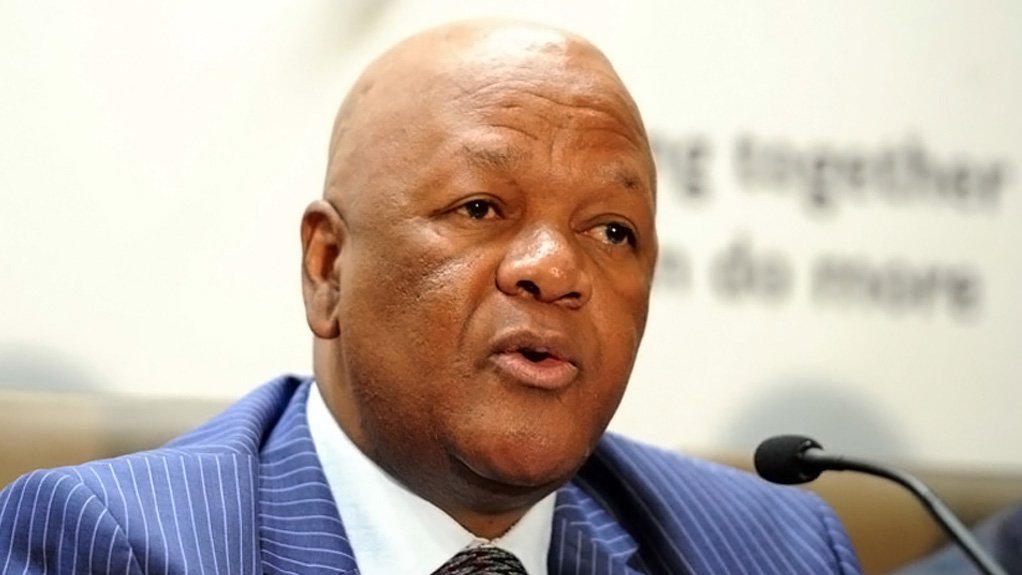The newly proclaimed Department of Planning, Monitoring and Evaluation’s (DPME’s) most important priority over the next five years will be to coordinate and monitor the implementation of the National Development Plan (NDP), Minister in the Presidency for Planning, Monitoring and Evaluation Jeff Radebe said on Monday.
Delivering his 2014/15 Budget Vote in Parliament, he said the key instrument that would be used to do this was the 2014 to 2019 Medium-Term Strategic Framework (MTSF), which identified the important actions required to implement the aspects of the NDP for which government was responsible over the next five years.
“The MTSF [which has 14 outcomes] reflects the commitments made in the governing party’s election manifesto, including the emphasis on radical economic transformation during the second phase of the democratic transition. The MTSF also emphasises improving service delivery and the performance of public services and improving the efficiency and effectiveness of local government,” Radebe said.
The Minister noted that to address some of the implementation problems that had been experienced in the past, the latest MTSF differed from those of previous administrations in a number of ways.
He said for the first time the MTSF served as a five-year building block towards the achievement of the country’s long-term plan.
The 2014 to 2019 MTSF was also much more detailed than the previous MTSFs and incorporated the outcomes-based planning methodology developed during the previous administration.
Further, measures had been put in place to ensure that the five-year strategic plans and yearly plans of all national and provincial departments were aligned to the MTSF and, therefore, to the NDP. The Treasury regulations had also been amended so that all departments had to submit their draft plans to the DPME to enable the department to review whether the plans incorporated all the targets of the MTSF before they were submitted to Parliament, Radebe noted.
He added that Parliament too had a critical oversight role to play in ensuring that the departments’ plans were aligned to the MTSF and the NDP.
“[Further], once the MTSF has been approved by Cabinet, the President will enter into performance agreements with all Ministers, based on the roles, responsibilities and targets in the MTSF.
“Ministers will also ensure that the relevant actions and targets in the MTSF are reflected in the performance agreements of their directors-general and cascaded down to the lower levels,” Radebe said.
He stated that the President would also appoint coordinating Ministers for each of the 14 outcomes in the MTSF, who would be required to coordinate the implementation of the MTSF’s outcomes, and present evidence-based progress reports to Cabinet at least three times a year.
These progress reports would be made public through the Programme of Action website managed by the DPME.
“All of these measures that I have described are aimed at ensuring that the aspects of the NDP, for which the government is responsible, are indeed systematically implemented,” Radebe said.
CHALLENGES
He pointed out that numerous challenges relating to the implementation of government policies and programmes remained, including weaknesses with meeting targets as well as weaknesses with the speed and quality of service delivery.
“Many priorities in the NDP are not about new policies and programmes but rather about giving effect to existing laws and policies and improving their implementation,” Radebe said.
He added that evaluations of government programmes that had been initiated by the Monitoring and Evaluation Department over the past few years had indicated that many programmes were not achieving as much as they were intended to, partly owing to weak programme planning, and needed substantial redesign.
“To address this, the department is developing guidelines on improved programme planning and putting in place support programmes to assist departments to develop improved programme plans. DPME is also providing support to national and provincial departments to produce better-quality strategic and yearly performance plans and reports against the plans,” Radebe stated.
He also noted that as part of improving the planning and implementation of policies and programmes, government had decided to pilot a methodology used by the government of Malaysia, called Big Fast Results.
South Africa would be using this methodology under the name of Operation Phakisa.
Radebe said President Jacob Zuma had launched the first pilot project for Operation Phakisa on the oceans economy earlier this month, stating that if this project was successful, the DPME would work with other departments to facilitate similar projects in other priority areas, such as health, basic education and municipal service delivery.
BUDGET
For the 2014/15 financial year the DPME had been allocated a budget of R208.2-million.
This budget was divided into three programmes, namely administration – which would receive an allocation of R63.8-million – outcomes, monitoring and evaluation – which was receiving R78.2-million – and institutional performance and monitoring and evaluation, with a budget allocation of R66.2-million.
The 2014/15 year budget for the National Planning Commission was R113.4-million.
EMAIL THIS ARTICLE SAVE THIS ARTICLE
To subscribe email subscriptions@creamermedia.co.za or click here
To advertise email advertising@creamermedia.co.za or click here











